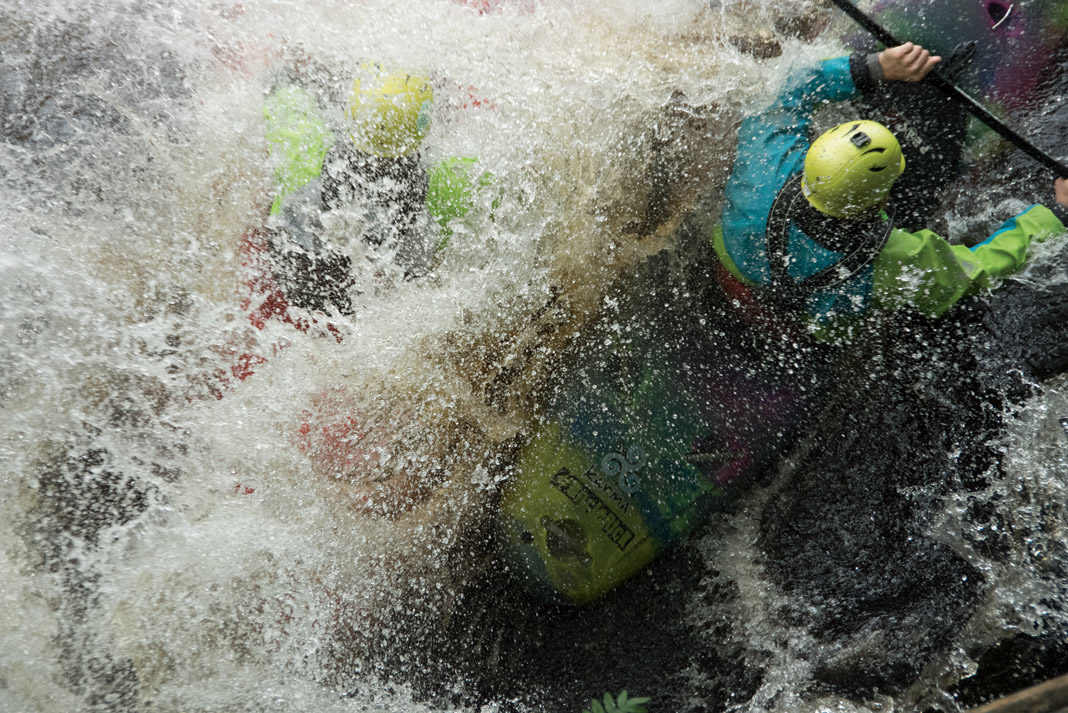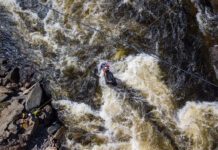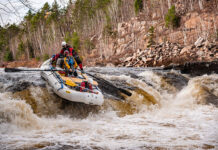There is a short list of paddlers with whom I will never run another river. Nice enough individuals, I just don’t want to be anywhere near them on the water.
Take Larry. He runs in my social circle, has more skill as a paddler than I do and I’ve spent quite a few river days with him.
But his antics just added up. Poking around upstream of log jams, probing big holes, which sometimes ended in broken paddles or smacks to his head. Finally, a stupid rock spin on the lip of a drop resulted in a stern pin I bailed him out of. Never again, I promised myself.
we trust paddlers who have skills to deliver on whatever they bite off, do so reliably and predictably, and appear to be in it for reasons aligning with our own
Take Curly. He’s not really a friend of mine, but he is in the local paddle gang. One day with Curly— during a spring flood run in which he was totally spooked, choked, and got himself into trouble with four swims—I said never again. It was carnage.
Then there is Moe. Moe just never shows up at the put-in. He always leaves the group hanging, unsure if we should wait a couple minutes longer or go without him. Something always comes up with him. I just don’t call Moe anymore.
As you might have guessed, names have been changed to protect the guilty. My short list is really just the list of paddlers I don’t trust.
In my professional life, I study safety. Specifically, I study how social influences such as peer pressure affect safety. My research is focused on different industrial sectors; however, I often include our small whitewater world. The environment in which we play turns out to be a good testing ground for safety behavior. I conducted one study looking at how raft guides influence each other’s safety beliefs and it was no surprise to me trust is a key variable.
Paddling with untrustworthy people is stressful
In the academic community, there is consensus a person’s trustworthiness is based upon one’s competency, predictability and intentions. In other words, we trust paddlers who have skills to deliver on whatever they bite off, do so reliably and predictably, and appear to be in it for reasons aligning with our own.
The relative importance of these three factors depends upon the context. For whitewater guides, my study found, predictability is paramount. Some guides have more skill than others, and individuals’ motivation may vary, but the most trusted guides are the ones who predictably do what is expected.
Interestingly, what guides want from their peers more than anything is to be trusted. Trust is currency in the guiding world. When guides say one of their own is good, what they really mean is this person can be trusted. More specifically, it means the individual’s behavior is predictable in safety and performance.
Guides also have their own short lists—their own Larry, Curly and Moe—of guides worked with but not trusted. My research found covering for bad guides is a significantly stressful aspect of river life.
Paddling at any time with untrustworthy people is stressful. Even if you’re not a raft guide, trust is still the dynamic holding your paddling gang together, and it’s certainly a prerequisite for allowing someone new into your gang.
In most cases, a paddler’s moral compass won’t allow him to just walk away from a sketchy or spooked paddler, so we end up taking responsibility for them.
At best, the experience is no fun and at worst it’s terrifying. Later we add this person to our short list. Don’t feel guilty for having your own blacklist of names—it’s self-preservation, sometimes literally.
Jeff Jackson is a risk management consultant and outdoor education professor at Algonquin College. Feature Photo: Rob Litherland









